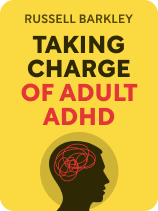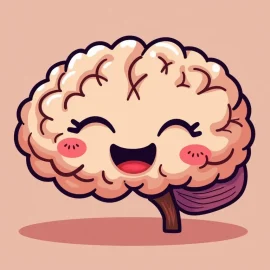

This article is an excerpt from the Shortform book guide to "Taking Charge of Adult ADHD" by Russell Barkley. Shortform has the world's best summaries and analyses of books you should be reading.
Like this article? Sign up for a free trial here.
Are ADHD people impulsive? What other issues can a lack of impulse control cause?
The most clear-cut symptom of adult ADHD is the inability to consciously avoid impulsive actions or to know how to appropriately respond to situations. For example, knowing when not to speak during a conversation when your impulse may be to interrupt someone else.
Let’s look at the science behind impulsive behavior in people with ADHD.
Lack of Impulse Control
When talking about whether ADHD people are impulsive, Russell A. Barkley explains this symptom’s neurological cause, how impulsive behavior can overwhelm your life, and how impulsivity affects your emotions.
In people without ADHD, the brain responds to external stimuli, such as phone notifications or blaring car horns, by pausing for a moment to generate a response, gauging what level of action to take, or ignoring the stimulus entirely. However, Barkley explains that in ADHD, the parts of your brain in charge of the “stop, think, then act” cycle are starved of the neurotransmitters they need to properly function. What happens, then, is that every stimulus leads to immediate action—such as checking your phone or steering out of traffic to see why horns are honking.
(Shortform note: A slightly different interpretation than Barkley’s is that ADHD isn’t a deficit of attention, but rather an issue with regulating and controlling attention. Our brains actually exercise two types of attention—automatic, used for interesting or engaging tasks, which is strong in people with ADHD, and directed, which is required for less interesting tasks, and is weaker in those with ADHD. The challenge lies in controlling and focusing attention, which is why some people with ADHD can hyperfocus on tasks they find interesting, sometimes to the point of neglecting other important activities.)
In everyday life, ADHD’s stimulus-to-action cycle manifests as impulsive behavior and a lack of inhibitions. Your brain literally can’t stop itself. At work, you’ll find it hard to complete any task when every potential distraction around you demands an immediate response. In social settings, you may talk excessively, interrupt other people, or go off on unrelated tangents because you can’t self-regulate your speech. When shopping, you probably spend too much on impulse buys because your brain can’t interrupt the signal between seeing something nice and sticking it in your cart. When compounded, all these impulsive acts can snowball into a debilitating torrent of out-of-control, self-sabotaging behavior.
(Shortform note: Impulsive behavior can arise from various conditions and circumstances beyond the ADHD stimulus cycle that Barkley writes about, so it’s important for physicians and people with ADHD to be able to distinguish between them. Some reasons for impulsive behavior unrelated to ADHD are bipolar disorder, substance abuse, and injuries to the brain’s frontal lobe. Understanding the underlying cause of impulsive behavior is crucial for effective treatment and management, especially since—as stated before—people with ADHD often have additional mental health challenges to deal with.)
In tandem with ADHD’s effects on controlling impulsive actions, it can also impair your ability to regulate emotions. Barkley explains that when your brain isn’t able to pause and process feelings, they come out as impulsive outbursts. This often leads to inconsistent emotional responses, which may be inappropriate or exaggerated in certain situations. For example, you might feel intensely angry or sad in response to a minor inconvenience, possibly expressing your exasperation by yelling or throwing objects. Likewise, you’ll sometimes laugh harder at a joke that others perceive as only mildly amusing. When expressing emotions appropriately is a challenge, the results are communication breakdowns and difficulty connecting to others.
(Shortform note: Despite their prevalence and impact, unregulated emotions aren’t currently included as a diagnostic criterion for ADHD, though they’re increasingly recognized by authors like Barkley as a significant aspect of the disorder. Recent studies indicate that this lack of emotional control has substantial impacts on relationships, mental health, and functioning in everyday life. Adults with ADHD who struggle with emotional regulation are more likely to experience anxiety and depression. At present, there’s a push for greater recognition of unregulated emotions as a part of ADHD, which might lead to better treatments in the future.)

———End of Preview———
Like what you just read? Read the rest of the world's best book summary and analysis of Russell Barkley's "Taking Charge of Adult ADHD" at Shortform.
Here's what you'll find in our full Taking Charge of Adult ADHD summary:
- The various treatment options for ADHD in adults
- How to accept ADHD as a part of your life
- What ADHD can look like in undiagnosed adults






